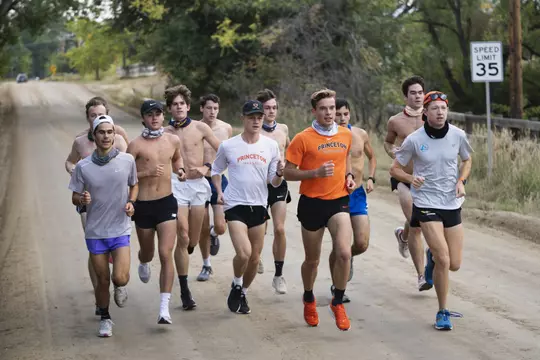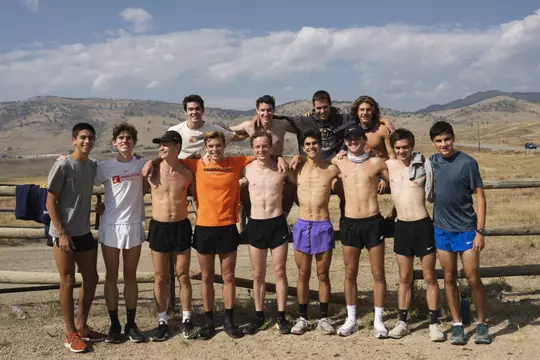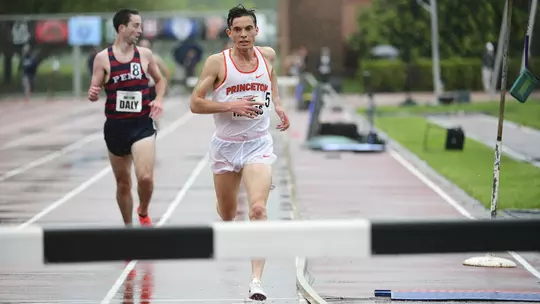
Ed Trippas' Road to Tokyo: An All Or Nothing Situation
7/15/2021
I got on the line and it was an all or nothing situation where I had to run 8:22.00 or faster to make it. Fortunately, I ran 8:19.60 and qualified. It was a pretty special moment.Ed Trippas
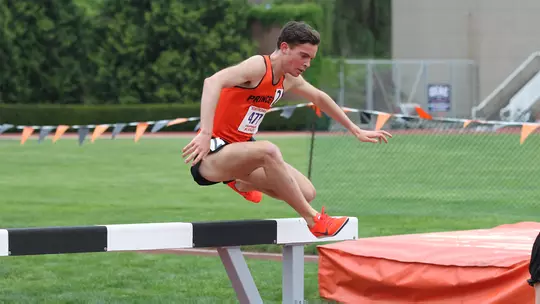
From canceled seasons, to injuries, to being confined to a hotel for two weeks, to all of the uncertainty brought on by COVID-19, the chaos of the past 16 months did not stop Ed Trippas of the Princeton University men’s track & field team from achieving his Olympic Dream.
For Trippas, this dream became a reality under the most improbable of circumstances. Competing in Valencia, Spain, on June 29, the final day of the Olympic qualification window, he needed to complete the 3,000-meter steeplechase in 8:22.00 to earn a spot on the Australian Olympic Team for the Tokyo Games.
He would go on to crush the required time, finishing in 8:19.60.

To put his performance in perspective, it was the No. 3 all-time best time by an Australian, the No. 10 all-time best time by an NCAA student-athlete, and had he competed in the at the 2021 NCAA Track & Field Championships, Trippas' time would have earned him a national title, as the 2021 men’s steeplechase National Champion finished in 8:28.20.
To those who know Trippas best, his ability to overcome adversity and accomplish his goals does not come as a surprise.
“Ed is mature beyond his years and has a wide-ranging support system which has allowed him to make the most of his talents,” said Head Cross Country Coach & Distance Coach in Track Jason Vigilante. “In 2020 Ed trained with his Princeton teammates and worked himself into great shape. Despite flying home to Sydney and being confined to a hotel room for 14 days he still stayed fit by riding an exercise bike. After that, his friends at home were wonderful training partners so he could continue building fitness throughout the spring. His parents, Brien and Suellen, have encouraged and supported Ed to venture out into the world and travel to the U.S. and Europe and have opportunities to race against the best runners in the world."
Ed was voted our team captain because he takes all of the resources available to him and makes the most of every opportunity in a kind, humble manner that belies the Tiger on the inside.Jason Vigilante
While this will be Trippas’ first time in Tokyo, it will not be his first Olympics. As a two-year-old, Trippas’ parents brought him to the 2000 Olympics in Sydney where they watched the marathon together.
At that moment, Brien and Suellen Trippas could have only dreamed that their young son would one day compete on that grand stage.
Growing up in Sydney, Trippas was an active youth who participated in soccer, swimming, rugby union, basketball and surf lifesaving. However, he always loved running the most.
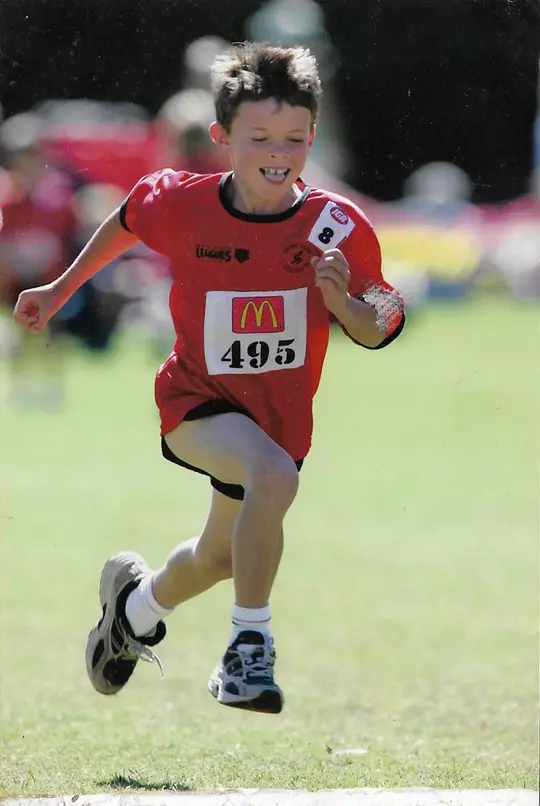
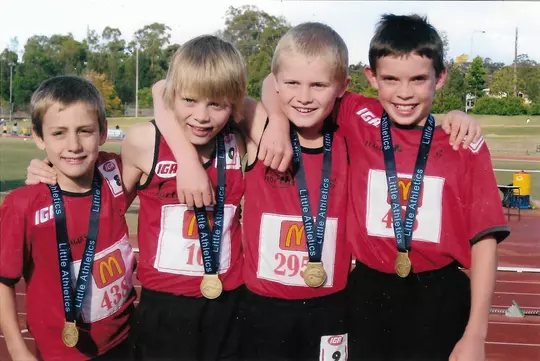
Naturally athletic, Trippas had some success in the sport of cross country when he was in second grade, which caused his parents to encourage him to start competing in track & field at his local club, UTS Norths.
“I would just do whatever events they had,” proclaimed Trippas. “Some weekends that was the jumps, the throws or the hurdles. That was kind of how I got my start in the sport. Looking back on it, that's where I learned to hurdle. I kind of developed a natural ability from doing the sprint hurdles when I was younger.”
As he got more serious about the sport, Trippas often had the opportunity to train at Sydney Olympic Park, where was regularly exposed to the many memorials of the 2000 games. These memorials helped inspire Trippas but were far from his only motivation.
“Seeing the memorials and plaques as you walk into the track with lots of the Olympians on them is inspiring, but honestly I draw more motivation from my friends and the guys I run with,” said Trippas. “The guys I train with will always the biggest inspiration and motivator, they were the guys who I was closest with.”
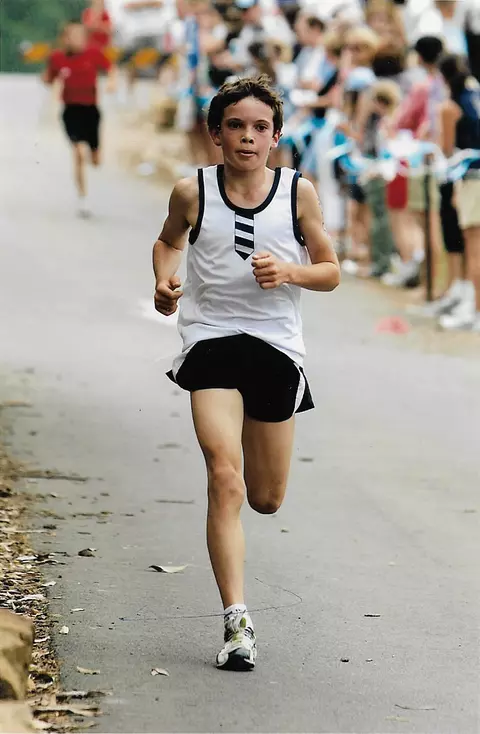
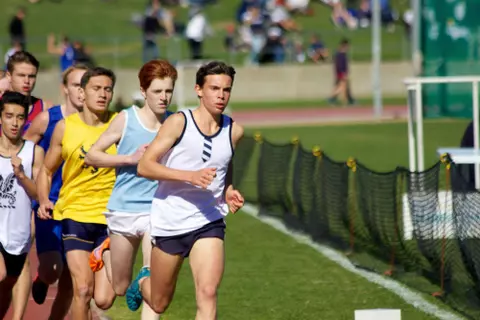
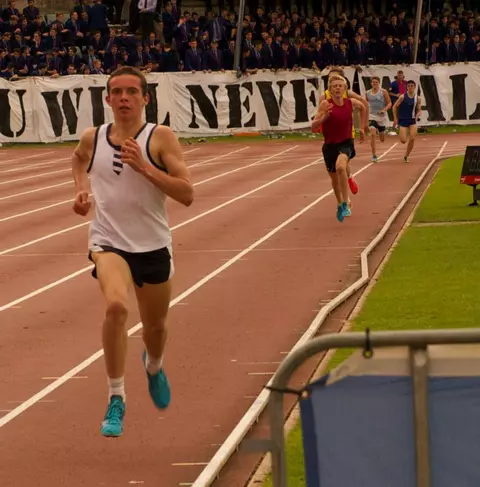
Growing up, Trippas was a regular at the Sydney Track Classic, an annual major track & field meet in the Harbor City. Seeing the top Australian athletes compete was inspirational for Trippas, as was getting the opportunity to train with Youcef Abdi, the No. 2 all-time Australian steeplechaser and a two-time Olympian who finished sixth at the 2008 Bejing Olympics. Abdi was coached by Trippas’ high school coach and would train with the team on occasion.
When I saw the guys I was training with having success, I knew I was on the right path and that pushed me.Ed Trippas
While he had success at younger ages, it was winning the Australian Junior National Title in the steeplechase in the U-18 age group that truly helped to seriously solidify his goals. Tremendous successes would be on the horizon, with his next big step being attending Princeton.
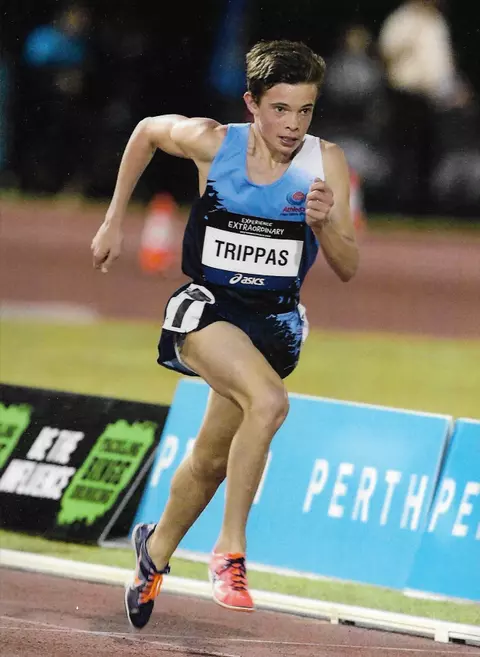
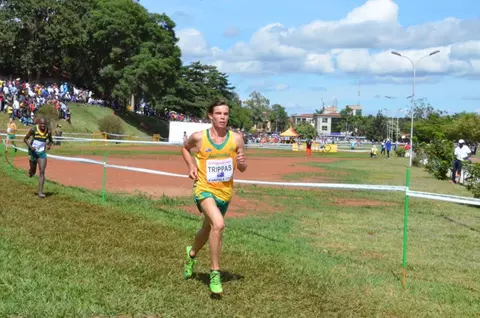
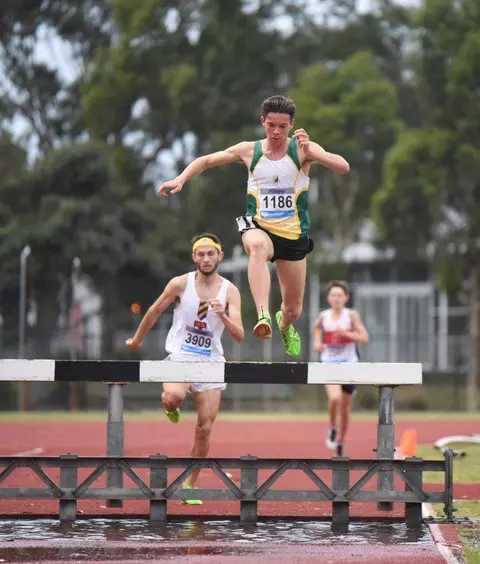
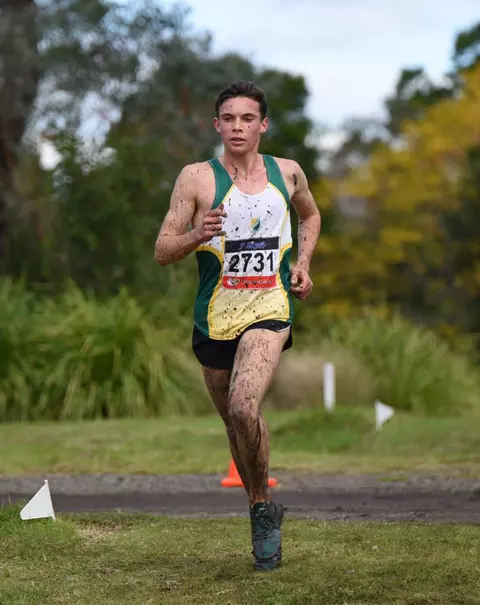
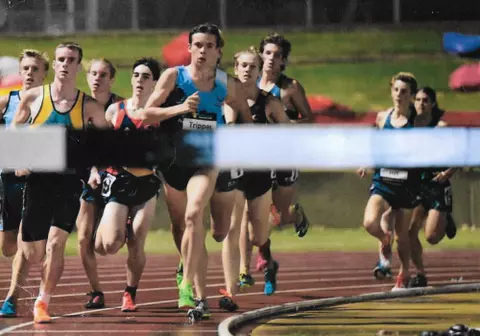
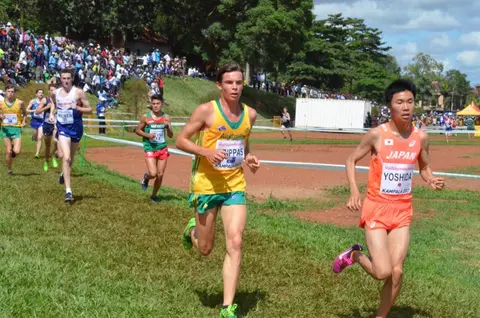
How does a steeplechaser from Sydney, Australia, end up at Princeton?
From Grade 10 onward, Trippas began seriously looking into opportunities to attend a university in the USA when he noticed there were a group of Australians performing at a high level in the NCAA. With academics also being of upmost importance to Trippas, he began looking at the top distance programs for men that also had strong academics. After seeing Princeton and meeting with Vigilante, Trippas was convinced Princeton was the place for him.
“I’m a pretty independent person, so the idea of going overseas or being away from home isn't really something that I was scared of,” said Trippas. “It excited me. The opportunity to get a really good degree, and then come over and run with a team as well was very appealing.”
At Princeton, Trippas has had an incredible career that has a final chapter still unwritten. He earned Honorable Mention All-America honors in the steeplechase in 2019 and competed in the event at the NCAA East Regional in both 2019 and 2018. He was the Ivy League Champion and earned First Team All-Ivy League honors in the steeplechase in 2019, and was the Ivy League Runner-Up and earned Second Team All-Ivy League honors in the 5,000 meters at Indoor Heps in 2020. Trippas also added valuable points for the Tigers in the 3,00 meters (Indoor Heps 2019 & 2020), the 4x800 meter relay (Outdoor Heps 2020) and the steeplechase (Outdoor Heps 2018).
He has also made an impact on the cross-country trails, as he was NCAA Championships Participant in 2018, earning Second Team All-Ivy League honors in the same season. Trippas will captain the cross-country team in fall 2021.
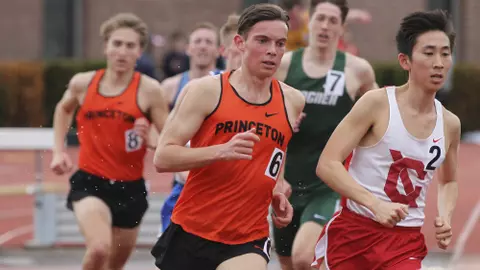
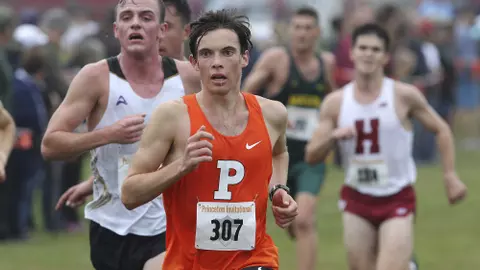
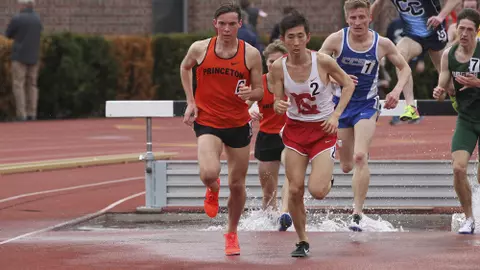
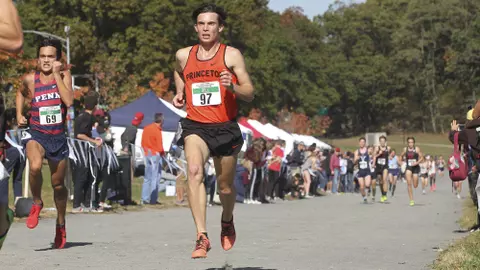
While the start of Trippas’ time at Princeton was filled with many highs, that all changed in March 2020 with the onset of the COVID-19 pandemic. The outdoor season was canceled, all classes were switched to remote and students were instructed to leave campus. After spending a day packing up his room, Trippas spent two days driving to Boulder, Colorado, with teammates Matt Grossman, Jakob Kintzele, and Kevin Berry. The quartet stayed in an AirBnB for a week then moved into another house briefly before settling on a final place where they were joined by several of their teammates. When it came to decide what to do for 2020-21, Trippas chose to take a gap year.
When he resumed running, injury struck when he hurt his ankle; Trippas was running 30-40 miles per week, four or five days a week but was often forced to take weeks off to heal his ankle and remain healthy. This was something he had to deal with until December, when he made the decision to go back home to Australia.
While it was challenging period for Trippas, the bonds he had built with his teammates over the years helped him stay positive and keep working toward his goal of Olympic qualification.
At times throughout the past 16 months, Trippas had the opportunity to spend time with his teammates. He got to see the Grand Canyon and hike up some of Colorado’s most notable mountains, including Mount Princeton, which stands at 14,204 feet.
The challenges weren’t over upon his return to Australia. With Australia’s borders closed to the rest of the world, returning Australians are forced to quarantine in a hotel for 14 days at their own expense. There are no exceptions, and the quarantine is strictly supervised. Trippas was able to arrange to have a exercise bike set up in his room, and given that his parents lived 10 minutes from the hotel, they were able to have food sent up to him. While he was not able to meet with his parents during the quarantine, he was able to wave to them from his window on the seventh floor of the hotel.
Trippas started out riding his bike for two hours a day, which still left the remainder of his waking hours empty.
“I’m really into the NFL and it was during the season, so there were days I would wake up at 5 a.m. and watch games,” explained Trippas. “They went to about 4 p.m., so I could fill the days watching games. Then there were days I’d watch a Bourne movie, then another, and it would only be 1 p.m. and I’d have nothing else to do so I’d end up watching all of them.”
While that only filled a couple of his days in hotel quarantine and he was left with much more free time that he's used to, Trippas was just grateful for the opportunity to return home during such a turbulent time.
Upon his exit from hotel quarantine, Trippas made the most of the opportunity to re-connect with family and friends he had not seen in a long time. He was also finally able get over his injuries and resume training seven days per week, culminating in his first steeplechase competition in two years in February. He ran 9:01.00 and was relieved to finish the race pain-free and healthy.
The fact that I knew I could finish it was huge, I knew my body could handle it. The outdoor season in Australia had just started, and my training was able to progress really well up to the point where I wanted it to be. I was finally able to get in the workouts I had been missing.Ed Trippas
As his training progressed, Trippas would compete at the Australian National Championships. He had competed at the Championships once previously as a teenager, but this year he felt confident he could place. Trippas ran a lifetime best time of 8:31.09, topping his previous best time of 8:33.90. Importantly, he finished third, with a top-three finish being part Athletics Australia’s selection criteria.
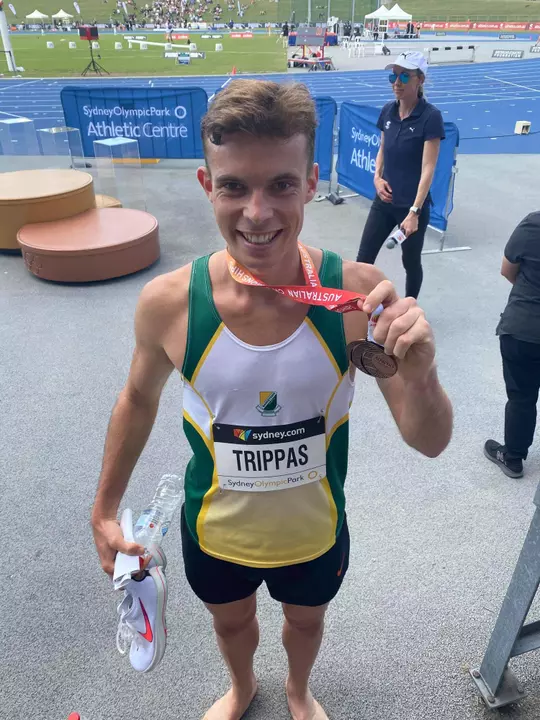
A week later, Trippas flew back to the US, a risky decision due to the uncertainty surrounding the pandemic. However, with a spot at the Olympics on the line, Trippas knew this was what he had to do in order to get the training and races he needed to qualify for Tokyo. He went and stayed with teammates Sam Ellis and Sebastian Fisher in Phoenix, and competed at a meet in California.
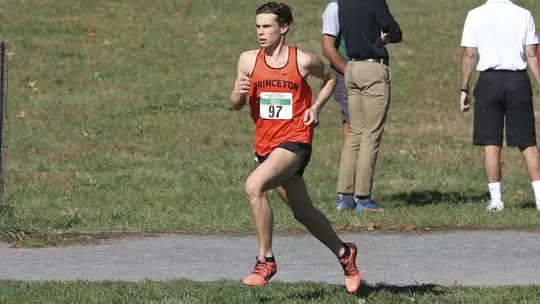
Trippas would then pack his bags for what he though was a one-week trip and stayed with teammate Ethan Reese in Portland and competed at the Portland Track Festival on May 29, where he ran a lifetime best of 8:26.25. He also finished two spots ahead of school record holder and two-time Olympian Donn Cabral ’12, who clocked in at 8:27.25.
His next move was to Nashville, where he competed in his final American meet and stayed with teammate Scott Thompson. With no more American meets available for Trippas to compete in, the morning after the meet Vigilante called and encouraged him to go Europe and find races to compete in. He knew this would give Trippas the best possible opportunity to make it to Tokyo.
Within 12 hours I booked a ticket, got my COVID test and got everything ready. The next day, I flew out to Europe.Ed Trippas
Still fatigued from the travel, he competed at a meet in France, which by his own high standards was not his best. Joined by a group of Australian athletes, Trippas then headed to Italy for three weeks to train and picked a race on June 29 in Spain to compete in. June 29 happened to be the very last day of qualification for the Tokyo games.
A world away from Sydney, a world away from Princeton, and a world away from all the comforts he had grown accustomed to over the years, Trippas’ Olympic dream all came down to his “all or nothing” moment.
The rest, as they say, was history.
He will remain in France for a short time to continue training at altitude, before heading to Germany with a group of Australian athletes for five days for some sea level training.
He will then head to Tokyo for what is going to be an Olympics unlike any other, due to specter of COVID-19 hanging over the games. While the crowds will be absent and usual mixing and mingling that takes place in the Olympic village won’t be taking place, it is the still the same Olympics that every kid who plays a sport wants to go to.
Whether he is wearing the green and gold of Australia or the orange and black of Princeton, Trippas inspires and uplifts those around him, delivers in the big moments and doesn't allow the bumps in the road to deter him from accomplishing his goals. Tokyo, his next chapter, now awaits.
*The opening round of the steeplechase will take place on July 30 and the final on August 2.
